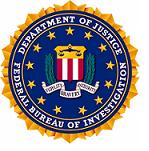The next FBI director
White House intensifies search for next FBI chief
 The Obama administration is ramping up its search for a new Federal Bureau of Investigation director, as Robert Mueller's term approaches its end in early September, with former Bush and Clinton administration officials and a federal judge among those being considered.
The Obama administration is ramping up its search for a new Federal Bureau of Investigation director, as Robert Mueller's term approaches its end in early September, with former Bush and Clinton administration officials and a federal judge among those being considered.
The next FBI director will have to navigate partisan fights over how to fight terrorism. Republicans have criticized the president for some of his national-security policies, particularly those dealing with Guantanamo Bay detainees and interrogation of terror suspects.
Civil-liberties groups and some Democrats have criticized the bureau for its policies on conducting terror investigations, particularly those involving Muslim communities in the U.S.
Interrogations of high-value terrorism suspects are now led by the FBI, under an Obama administration policy change, as opposed to the Central Intelligence Administration. The CIA, which was criticized for harsh interrogations during the Bush administration, assists in the new interrogation teams the FBI heads.
Mr. Mueller, 66 years old, took office a week before the Sept. 11, 2001, terror attacks. During his tenure, the bureau has moved agents away from some domestic criminal investigations to focus on preventing potential terror attacks.
Soon after 9/11, he fought off proposals to split the FBI into separate intelligence and criminal investigative agencies.
While the FBI has weathered several controversies, Mr. Mueller, a former Marine who earned combat medals in Vietnam, has emerged from the last decade with admirers in both parties, owing in part to his low-key style and aversion for publicity.
He steered the FBI away from some controversial Bush-era policies. He also managed the agency through missteps in its investigation of the 2001 anthrax attacks, and Justice Department audits that showed FBI agents abused their power in the use of investigative subpoenas known as national security letters.
David Ogden, a former Obama deputy attorney general and who helped lead the president's post-election Justice Department transition team, praised Mr. Mueller's tenure. "He presided over the transformation of that institution from one that focused on catching the bad guy after the fact, into a proactive crime-prevention operation whose mission was to prevent terrorist attacks on the United States," said Mr. Ogden, now a white-collar attorney in Washington.
The candidates being discussed, according to U.S. officials, are James Comey, Kenneth Wainstein, Patrick Fitzgerald and Merrick Garland. Also in the running, the officials said, are Michael Mason, John Pistole and Jamie Gorelick.
Several of the candidates to succeed Mr. Mueller have national-security experience. Some are veterans of the courtroom, while others have a stronger background as law-enforcement leaders. President Barack Obama's choice will require Senate confirmation.
Some of the candidates have been involved in political skirmishes. Mr. Comey, a former deputy attorney general, was at the center of a standoff with the Bush White House in 2004 over surveillance policies, which almost led to the resignation of Mr. Comey and other top officials, including Mr. Mueller. Mr. Fitzgerald, a U.S. attorney, was criticized by many conservatives for the prosecution of former Vice President Dick Cheney's top aide, I. Lewis Libby.
Michigan Rep. Mike Rogers, a Republican who is chairman of the House Intelligence Committee and a former FBI agent, said the next FBI director should have an understanding of agents. "The next 10 years are almost more important because you now have to incorporate [intelligence into] the agent's mission and you have to get the agents to buy in to this," Mr. Rogers said.
Messrs. Comey, Garland and Pistole didn't respond to requests for comment. Messrs. Fitzgerald, Wainstein and Mason, and Ms. Gorelick declined to comment.
The FBI agents association sent a letter this week to attorney general Eric Holder endorsing Mr. Mason, saying he embodies several "principles" that should be taken into account in selecting Mr. Mueller's successor. These principles including bridging the criminal and national security responsibilities, and seeking input from agents, the association said.
(Published by WSJ - March 16, 2011)